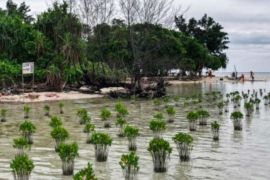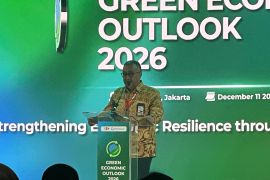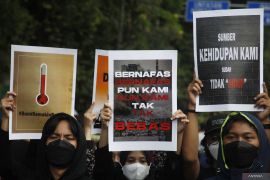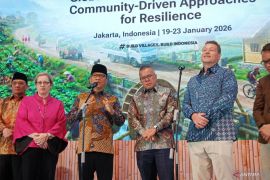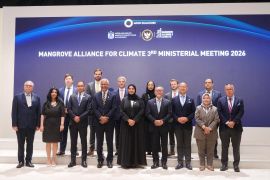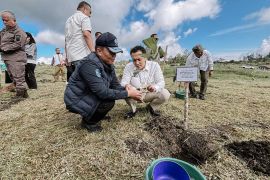The survey found that 89 percent of the total respondents cited climate crisis as one of the biggest challenges faced by today's generation, of which 59 percent expressed major concerns, while 30 percent viewed the climate crisis as a grave problem. Meanwhile, nine percent of the respondents voiced slight concerns.
"Only 0.6 percent of the respondents are not concerned over the impact of the climate crisis, while one percent were unaware or perhaps did not believe in it," Executive Director of Cerah Foundation Adhityani Putri stated in her presentation on the survey findings at a virtual press conference held on Friday.
The survey, disseminated to Change.org users and social media users through platforms, such as Facebook and Instagram, covered respondents in the age band of 17 to 51 years, with most being 21-30 years of age, constituting 37 percent of the total respondents.
Some 72 percent claimed to reside in Java; 13 percent from Sumatra; six percent from Kalimantan; four percent from Bali, West Nusa Tenggara, and East Nusa Tenggara; as well as two percent from Sulawesi; and one percent from Maluku and Papua.
The survey indicated that the active youth samples obtained information on climate crisis through various sources, with 72 percent from the online media; 54 percent from online sites and social media platforms, such as Instagram, reaching 46 percent; YouTube, 42 percent; Twitter, 19 percent; and Facebook, 18 percent. Merely 17 percent gained information from newspapers and nine percent from magazines.
Some 64 percent of the respondents believe that the impact of climate crisis can be worse than that of COVID-19, with 32 percent harboring a belief that the impact will be akin to that of the ongoing pandemic. Only three percent of the respondents forecast the impact of the climate crisis to be less severe than the COVID-19 pandemic.
"We also conducted a survey on what they perceive as the best solution, and putting a stop to land and forest clearing and burning emerged as the top response, at 28 percent," she pointed out.
The second solution, selected by 26 percent of the total respondents, was to end dependency on fossil fuel and start using renewable energy. Meanwhile, 19 percent of the respondents believe that the solution is to lead an environment-friendly lifestyle.
"From the first and second responses, for us, that is great news since it means there is a sense of understanding among them to bring about massive and systemic changes," she added.
Related news: Climate change impacts better addressed through local wisdom: BMKG
Related news: Govt should preemptively tackle climate change impacts on rice yield
EDITED BY INE
Translator: Prisca Triferna Violleta/Aria
Editor: Suharto
Copyright © ANTARA 2020

